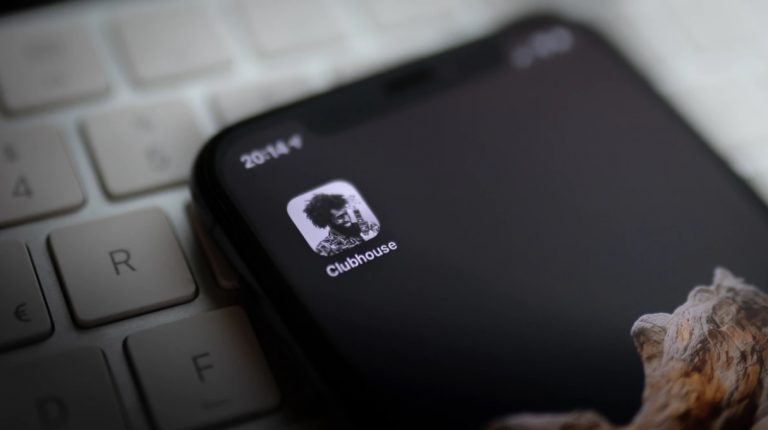The new social network based solely on live verbal conversations is an outstanding success. Discovery of Clubhouse in 6 highlights.
- An application based on live verbal conversations
Let us explain the principle of this application. The principle of which goes against the majority of current social networks. On Clubhouse, no publications, no photos, no videos, no hashtags. Neither written nor visual. Just audio! And not a podcast, just live.
The user goes through the chat rooms, limited to 5,000 people simultaneously, and can listen to conversations on topics of interest. A kind of verbal meet-up or radio debate 2.0 in short. To participate, simply ask the moderator.
- A viral communication
Another bizarre feature: the application is currently only available for people with an iPhone or iPad. The Android version being not yet released.
And even with a device flanked by an apple on the back, it is not possible to access it spontaneously! It is necessary to be sponsored. Each user has two invitations to share with his or her entourage. Of course, this is something to attract and generate that little feeling of private club elitism.
- Celebrities at the rendezvous
To add to the fervour on social networks, the application relied on known personalities to develop its notoriety.
Entrepreneurs Elon Musk and Mark Zuckerberg, host Oprah Winfrey, actor Jared Leto, French comedian Jamel Debbouze, American rappers Meek Mill and 21 Savage, etc. have all been interacting with listeners on the platform since its inception.
- The spirit of early Twitter
This is at least what those who tested the concept say, notably Bruno Guglielminetti, Digital Strategy Consultant. Because of the barrier at the entrance, Clubhouse is a virgin of the traditional trolls. People listen to each other, talk, exchange… at least for now.
And in times of confinement everywhere on the planet, this need to reconnect undoubtedly helps the development of the application!
- A unicorn… less than a year old!
A huge success. Clubhouse was created in California in March 2020 by Paul Davison and Rohan Seth, the first being an entrepreneur of Silicon Valley and the second being an engineer at Google.
Le Monde explains that the African-American community, under the impetus of some investors in the application, has been very much involved in its success since its launch.
In January, Clubhouse was already worth more than one billion dollars, granting it the unicorn status and, today, it has more than 10 million users. Despite its ban in China last February.
- Controversies despite everything
This “vocal LinkedIn” suggests some questions. On the one hand, how to moderate on an audio social network, in other words without keywords or visuals? Especially when it comes to live conversations, impossible to record or replay.
This last point is also the source of a feeling of “fear of missing out” (FOMO), the fear of missing something important, generated by Clubhouse. This can make it very time-consuming and addictive. Sites are also already pointing out security vulnerabilities.
According to the New York Times, the social network does not want to sell advertising but rather receive remuneration through paid events, a subscription model or tips. That is a good idea.
What do you think of Clubhouse?




